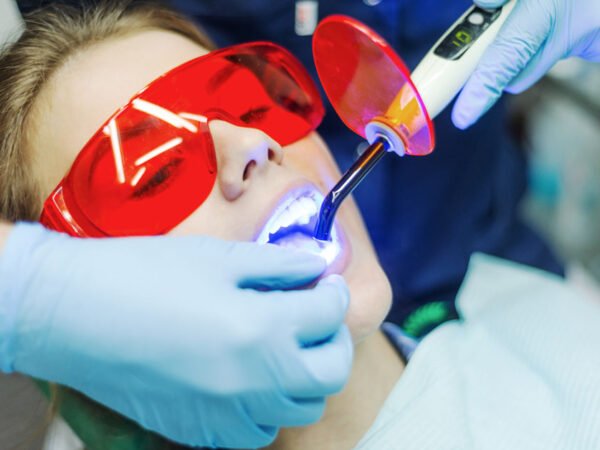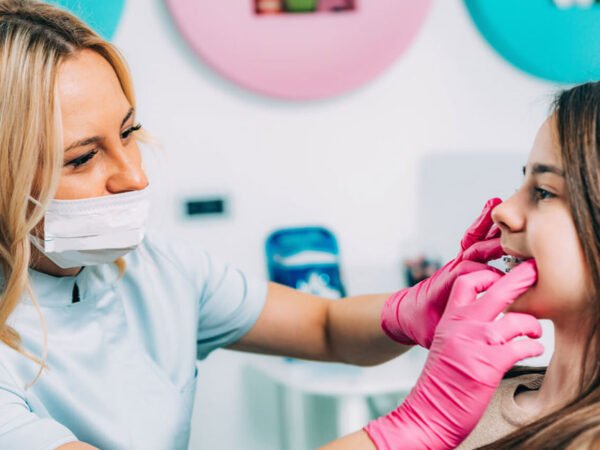Have you ever thought about the connection between your teeth and your ability to speak clearly? It might not be the first thing that comes to mind, but your oral health plays a fundamental role in articulation. The way your tongue, lips, and teeth work together allows you to form sounds, words, and sentences. When one part of this system is compromised, it can have a noticeable impact on your speech.
This post will explore the fascinating link between a healthy mouth and clear communication. We will cover how different dental issues can affect your speech patterns and provide actionable tips to maintain both your oral health and your ability to express yourself confidently. Understanding this connection is the first step toward protecting your smile and your voice.
The Mechanics of Speech: Your Mouth’s Role
Producing sound is a complex process that involves more than just your vocal cords. Your mouth acts as a resonating chamber, and the precise placement of your tongue against your teeth and palate is what allows you to articulate distinct sounds.
Think about the sounds you make every day.
- Fricatives:Sounds like “f,” “v,” “s,” and “z” are created by forcing air through a narrow channel made by your lips and teeth. If you have gaps from missing teeth, it can be difficult to produce these sounds correctly, often resulting in a lisp or whistling sound.
- Plosives:Sounds like “t,” “d,” and “p” require your tongue or lips to stop the airflow completely before releasing it. The position and presence of your teeth provide the necessary barrier for your tongue to press against.
- Dentals:Sounds like “th” are formed by placing your tongue between or just behind your upper and lower teeth. Any discomfort or structural change in your teeth can make this placement awkward and affect pronunciation.
Essentially, your teeth provide the architectural framework necessary for your tongue and lips to perform the delicate movements required for clear speech.
Common Dental Problems That Affect Speech
Several oral health issues can interfere with your ability to speak clearly. Identifying and addressing these problems is crucial for maintaining effective communication.
Missing Teeth
Losing one or more teeth is one of the most common causes of speech impediments. Gaps in your smile can disrupt airflow and remove the physical structures your tongue relies on for sound formation. This can lead to slurring, lisping, or difficulty pronouncing certain words. In some cases, a procedure like a tooth extraction in Harrisonburg, VA, might be necessary to address a severely damaged tooth, but it’s important to discuss replacement options like implants or bridges with your dentist to restore both function and speech.
Misaligned Teeth (Malocclusion)
When your teeth are not properly aligned, it can create challenges for your tongue to find the correct position for making sounds. An overbite, underbite, or crossbite can alter the space within your mouth, leading to lisps or other articulation problems. Orthodontic treatments like braces or clear aligners can correct these alignment issues, often leading to a significant improvement in speech clarity.
Dentures and Other Appliances
While dentures are designed to replace missing teeth, they can take some getting used to. Ill-fitting dentures may slip or click when you speak, causing slurring or mumbling. It’s important to work with your dentist to ensure a proper fit. Similarly, new retainers or braces can temporarily affect your speech as your tongue adapts to the new appliance in your mouth. With practice, your speech will typically return to normal.
Gum Disease and Inflammation
Advanced gum disease, or periodontitis, can cause your gums to recede and your teeth to become loose. This instability can make it difficult to articulate sounds correctly. Swollen or tender gums can also make certain tongue movements painful, leading you to subconsciously alter your speech to avoid discomfort.
Protecting Your Speech Through Good Oral Hygiene
The good news is that you can take proactive steps to protect both your oral health and your speech. A consistent oral hygiene routine is your best defense.
- Brush and Floss Daily:Brushing twice a day with fluoride toothpaste and flossing once a day removes plaque and prevents cavities and gum disease.
- Stay Hydrated:Drinking plenty of water helps wash away food particles and keeps your mouth moist, which is essential for clear speech. A dry mouth can make it difficult for your tongue to move freely.
- Regular Dental Check-ups:Visiting your dentist every six months for cleanings and exams allows for the early detection and treatment of potential issues before they impact your speech.
- Address Dental Issues Promptly:Don’t ignore dental pain, loose teeth, or other concerns. Seeking timely treatment can prevent problems from worsening and affecting your communication.
A Foundation for Confident Communication
Your oral health is more than just a bright smile; it’s a cornerstone of your ability to communicate effectively. By taking care of your teeth and gums, you are also investing in your confidence and clarity of expression. If you’re experiencing speech difficulties that you suspect may be related to a dental issue, the best next step is to consult with your dentist. They can help you identify the root cause and create a treatment plan to restore your oral health and help you speak with confidence once again.













